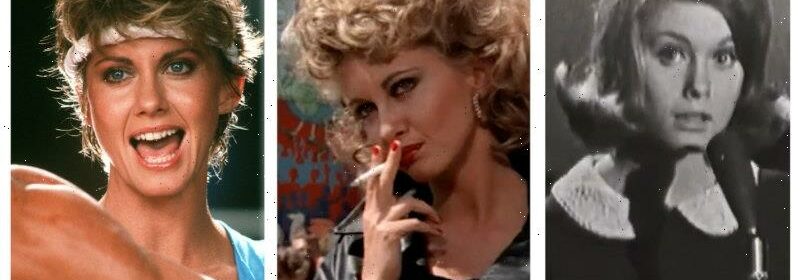How Olivia Newton-John guided us from blissful AM radio to raunchy MTV

If I had to choose just one song to remember Olivia Newton-John, it would be Banks of the Ohio. Fifty-odd years after it was released, with that magic that only pop songs are possessed of, it’s a failsafe portal to the blissful brown corduroy sunshine of the early 1970s, the push-button AM radio soundtrack to Sunday drives and family picnics.
Olivia was just a girl; not much older than us. You could hear that in her voice. Out of her depth, not ready for love. She held a knife, he lunged into her arms. Not her fault, really. The booming bass counterpoint seemed to understand. The apple-pie country chorus sighed.
Country music was a big part of AM radio’s Top 40 fabric in those precious days. Olivia found her niche in it with spectacular success. Her other hit that year was If Not For You, a song written by Bob Dylan and recorded by George Harrison, though neither of their versions felt as true as hers. As if the sky would ever fall on those guys.
The mildly twangsome songs of romantic bliss and heartbreak kept coming, despite the brewing storm of discontent in Nashville, where an English-Australian gal scooping Academy of Country Music honours was seen as sacrilege. Despite my hardening teenaged exterior, they still made me swoon. Breathless flirting tunes like Let Me Be There, If You Love Me, Let Me Know and Have You Never Been Mellow interleaved with jukebox tearjerkers like I Honestly Love You and – oh my heart – Please Mr. Please. “Don’t play B-17! It was their song, it was his song, but it’s over.”
The magic was due in no small part to writer/producer John Farrer, but it was the girl in the story – Olivia, our slightly older and braver sister, growing up in public over there on the great big American stage – that made the songs live and breathe; real-time milestones on that road from innocence to … well, Grease.
It’s hard to think of a more prescient mirror of art and life than that scene where Olivia’s Sandy transforms from 1950s girl-next-door to the kind of spandex siren who would soon be all over MTV like an itchy rash. Hopelessly Devoted to You and You’re the One That I Want leapt the chasm from innocence to experience in one movie. Flares and disco flicks flapping, we could only try to keep tongues in our heads as we followed.
The many versions of Olivia Newton-John.
With Xanadu, the future was truly upon us and after Physical, there was no turning back. As the Buggles sagely observed, MTV was a revolution that put the radio star on notice. Our Olivia, as our Molly had long taken to calling her, was a natural for the new medium’s lofty photogenic standards, but it was some kind of genius that engineered the image change to leotard, legwarmers and saucy smoulder.
I was past swooning by now of course; 20-something-year-old cynicism quickly caught on as the big bad pop machine lurched into its boom decade. Physical felt more like a shrewd marketing move than a young woman finding her way through the reveries and cruelties of love but hey, big sisters grow up and so do we. If Olivia wanted to sing Can’t We Talk It Over in Bed well, eww, but that was her business.
After a decade-plus in ascent, the fact that the hits wouldn’t last much longer is no disgrace. Within a few years, greatest hits albums with boardroom-brainstormed titles like Back to Basics would begin to outnumber attempts to re-enter the increasingly raunchy video hit parade.
The story those albums tell is the story of our times. The singer who led us through that story, as girl and woman, feels today like a lost member of the family. It’ll no doubt be Sandy, the lycra-hipped Grease siren, or the roller-disco goddess from Xanadu, or the leotard-donning dominatrix of Physical that most will rightly remember. Me? I’ll be grabbing some of that eternal ’70s sunshine down by the banks of the Ohio.
Our Breaking News Alert will notify you of significant breaking news when it happens. Get it here.
Most Viewed in Culture
From our partners
Source: Read Full Article
